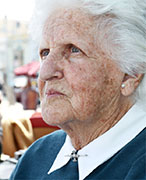- Could Your Grocery Store Meat Be Causing Recurring UTIs?
- Are You Making This Expensive Thermostat Error This Winter?
- Recognizing the Signs of Hypothyroidism
- 10 Strategies to Overcome Insomnia
- Could Artificial Sweeteners Be Aging the Brain Faster?
- Techniques for Soothing Your Nervous System
- Does the Water in Your House Smell Funny? Here’s Why
- Can a Daily Dose of Apple Cider Vinegar Actually Aid Weight Loss?
- 6 Health Beverages That Can Actually Spike Your Blood Sugar
- Treatment Options for Social Anxiety Disorder
Scientists Spot Genes Linked to Rosacea


The first genetic factors associated with the skin disorder rosacea have been identified by researchers.
More than 16 million people in the United States have rosacea, an incurable skin condition that causes symptoms such as redness, visible blood vessels and pimple-like sores on the face, the researchers said.
Many people with rosacea have stinging, burning or increased sensitivity in affected areas of the skin.
For the study, researchers analyzed genetic data from more than 46,000 consenting customers of the U.S.-based genetic testing company 23andMe. More than 2,600 of those people had been diagnosed with rosacea.
The investigators identified two genetic variants strongly associated with rosacea among people of European ancestry.
However, the association seen in the study does not prove a cause-and-effect link.
The genetic variants are in or near the HLA-DRA and BTNL2 genes, which are associated with other diseases, including diabetes and celiac disease, according to Dr. Anne Lynn Chang, from the Stanford University School of Medicine in California, and colleagues.
The study was published recently in the Journal of Investigative Dermatology.
More information
The American Academy of Family Physicians has more about rosacea.
Source: HealthDay
Copyright © 2026 HealthDay. All rights reserved.










